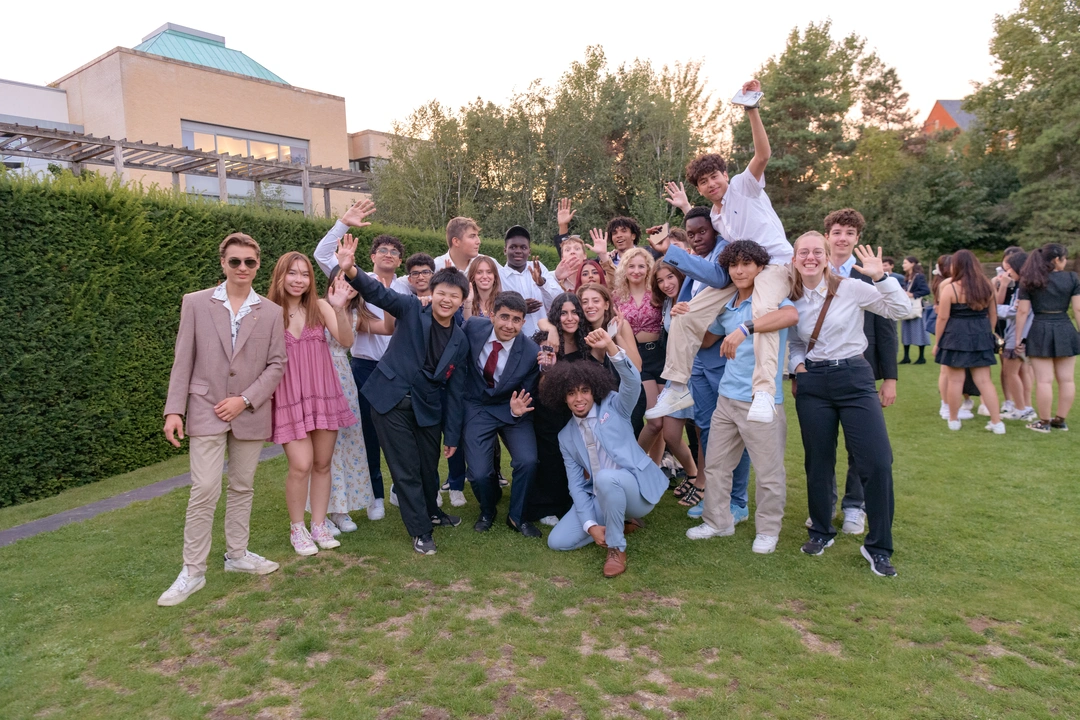How Can High School Students Build Careers That Matter?

High school students today care more about the positive impact of their future professions than any other factor (OxBright, 2023). But how can you turn this idealism and motivation into a meaningful career?
Recently, we hosted Valerie Sutton, Chief of Workforce Navigation and Transformation at Exponential Changemakers, and former Head of Careers at Harvard’s Graduate School of Education, for a webinar aimed at teachers looking to better support their students.
But Valerie’s insights weren’t just relevant for educators – she shared a range of tips, tricks and perspectives that are directly relevant for you as you begin to explore and prepare for various career options. We’ve consolidated these into five key takeaways for you in today’s article.
1. It’s Okay to Change Your Mind
You might have seen headlines and clickbait social posts talking about the unstoppable trend of job hopping amongst Millennials and Gen Z, but switching companies, roles and careers is certainly nothing new.
Valerie was able to draw on her own personal experience of changing careers throughout her working life in order to shed some light on the benefits of exploring different passions and finding opportunities that enthuse you.
Ultimately, you’re the one who’s going to have to wake up and head to your job five plus times a week – nobody wants to feel dread every morning for 40+ years, so it’s very much worth playing the field and trying different things until you find a niche that fits you well.
It’s also worth noting that what fits you at one stage of life won’t necessarily be the right place for the longer term. When you’re younger, you might be more willing to work slightly longer hours to progress, but as you get older you might look to reclaim a better work-life balance with a role shift, for example.
The key takeaway from all of this is that it’s okay to change your mind. It’s okay to study one subject and pursue a career in an unrelated field (as long as you have the required qualifications), and it’s okay to build one career and then move sideways into a completely different industry. Your job should always serve you – if you notice that’s no longer the case, you can, and should, change it.
2. “Follow Your Passion” Isn’t Always the Best Advice
We’re sure you’ve been told, at least once, that the best way to secure a career you love and find meaningful is to follow your passions or interests. To an extent, this can be good advice – if you find a niche that you enjoy, it’s not that you’ll never have to work a day in your life (there’ll always be less-great days, tight deadlines or speed-bumps along the way), but you’ll be more resilient to the challenges, and more invested in the outcomes of your work.
That said, the realities of work in a field you’re passionate about – particularly if it falls into less stable industries like the creative sector – can tarnish your enjoyment. It’s crucial, therefore, that students consider what they’d be interested in monetising, and what they’re content to reserve for post-work relaxation.
Sometimes hobbies and interests might not map with meaningful careers, either. Remember it’s always possible to balance things like volunteering, fundraising and private donations alongside your job, if external factors make it difficult to build a whole career that perfectly aligns with your moral compass.

3. Career Development Approach
One of the core takeaways from Valerie’s webinar was her four part Career Development Approach. This is a really helpful framework that can help you to kickstart your careers thinking, while making sure any outcomes align with both your interests and your values. We’ve broken down each step below:
I. Mission alignment
Before you can embark on a meaningful career, you need to identify the causes that matter most to you. In an ideal world, you’d complete this step before gaining any real awareness of the actual opportunities open to you, although this isn’t always possible.
Lists can be a helpful starting point here – get a piece of paper or a blank note on your phone and list three to five social causes you care about. These could be things like racial, gender-based and LGBTQ+ issues, refugee and humanitarian support, or access to education. Now list three to five environmental causes and three to five local causes. This gives you a strong bank of sectors you can focus in on when it comes to the companies you consider.
The role you play within a company should also align with your mission – do you want to be encouraging others to action through marketing and communications work? Perhaps you’d prefer to generate funds through sales and fundraising? Or maybe you care most about supporting others, and a path in HR would appeal most to you.
II. Skills and knowledge development
Once you feel slightly more sure of your core values (just like your dream job, these can, and likely will, change as your career progresses, and that’s okay!), you can begin to build relevant skills and start reading around your chosen areas.
If you’re still not quite sure what you’d like to do, or perhaps you’re still very early in your career exploration, you can keep your skills development broad and transferable. Examples of these skills could include critical thinking, flexibility and resilience, as well as more practical skills like public speaking and organisation.
III. Life needs
This one can be a bit trickier to consider while you’re still at high school, but it’s a great idea to be aware of your life needs and how they might change as you get older.
This category covers a lot of ground, so here are just some examples:
- Geography – students might be tied to areas due to family, visa requirements or cost of living
- Minimum salary
- Benefits – particularly important in countries such as the US
- Identity needs – these could include workplaces with prayer or contemplation rooms, or equal opportunity champions
Spend some time thinking through your potential life needs for the future.
IV. Work culture
Being able to evaluate the work culture of any given setting might well be the single most valuable skill you can develop in your career journey. A toxic work environment can bleed into almost every other aspect of your life, so it pays to be able to spot the signs at an interview or early in your employment.
You also want a culture that matches your working style – if you enjoy autonomy and managing your own workload, you’ll want to avoid a culture of micro-management. Similarly, levels of intellectual challenge can vary vastly between companies.
Building a career that matters is the work of a lifetime, so it’s crucial to enjoy each step of the journey. If you’re looking for more support when it comes to discovering career options out there, check out our Career Test. In addition to personalised role recommendations, you’ll find a sustainability index and resource recommendations to further your research.

By Sophie Parker
Our Head of Content, Sophie, is responsible for our blog and our resources. She graduated from University College London, where she read English. In addition to her content work, Sophie volunteers with several charities, supporting children’s literacy with 1-12 year olds, and representation in schools for students aged 11-18.
Recommended articles
Which Career Is the Best Fit for Me?
Choosing your career path is one of the first big steps you’ll take as a young adult, so it can often be a daunting prospect. However, the possibilities are endless, and as long as you base your choices on your personal preferences, passions and interests, your...
How to Make a Study Schedule That Actually Works
Studying can sometimes feel like a daunting task, no matter how old you are or what level you’re studying at. You might be left thinking: How can I balance academics with my other commitments? How do I stay consistent with a study schedule? Is there a “good” or...
The 15 Best Universities for History in the UK
History is a gateway to understanding people and the world around us, exploring key concepts like cause and effect, and change and continuity. The subject is vast and detailed, with a host of wider applications, making it a valuable subject to study at university.Is...



